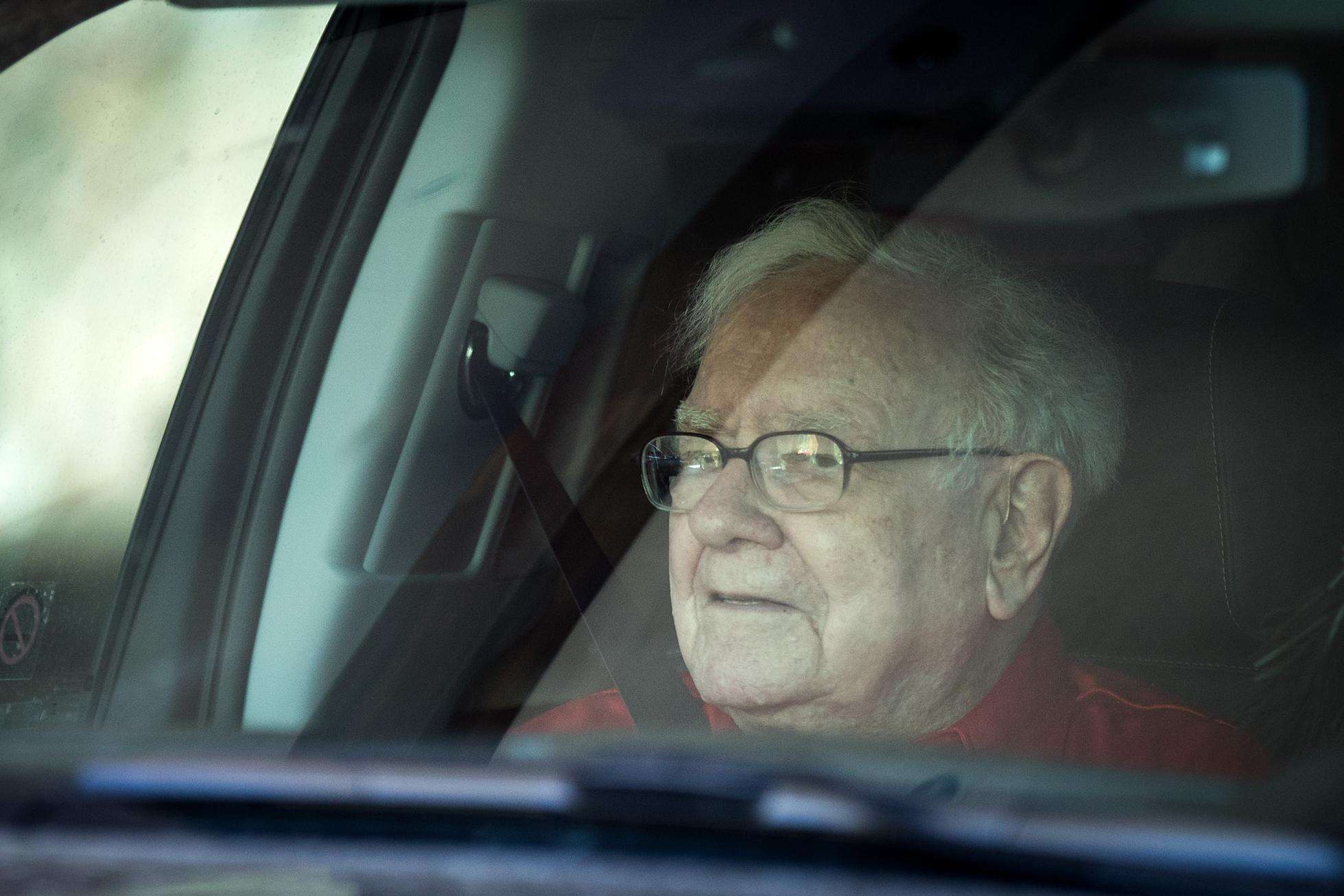Of the world’s 10 largest publicly traded companies, eight are blockchain bulls — building a wide range of products that use the distributed ledger technology first popularized by bitcoin. Hugely absent from those blockchain fans: Warren Buffett’s Berkshire Hathaway and Tim Cook’s Apple.
The findings are based on Forbes annual Global 2000 list of the largest publicly traded companies in the world, based on sales, profits, assets and market value. It’s significant that half of the top 10 companies on the list were featured on Forbes’ annual Blockchain 50 . The number one company on the list is once again China government owned Industrial and Commercial Bank of China, which now has 30 blockchain applications tracing health-care coverage, philanthropic donations and more.
While both Apple (No. 6 on the list) and Berkshire Hathaway (No. 3) have publicly dabbled in blockchain, so far, their work appears to be early stage, and defensive. Are they letting a technology revolution pass them by?
Apple’s near total negligence in blockchain is most surprising. It created the entire smartphone and tablet industries, and has led the way connecting those devices to the global economy with products like Apple Pay (with 500 million iPhone users) and the Apple Card issued by Goldman Sachs (No. 26 on the Global 2000). Last year, Former Goldman Sachs exec and bitcoin bull Raoul Pal perhaps wishfully speculated what it would mean if Apple moved just a sliver of its $200 billion war chest into bitcoin. The year before, Apple Pay vice president Jennifer Bailey provocatively said cryptocurrency has “long term potential.”
The only solid proof of Apple’s work in blockchain is a patent and an SEC filing. In February 2016 Apple filed an early blockchain patent for using blockchain to “stamp” digital documents with a time, allowing their movement to be more accurately tracked and potentially helping prevent fraud. Five years ago, the patent generated some waves in the media, but now that IBM (No. 60), Xerox and others have filed similar patents, the project is about as close to white bread as blockchain gets. Probably just a defensive measure in a world dominated by open source technology.
In 2019, Apple filed a report to the Securities and Exchange Commission detailing its “support” developing blockchain guidelines for the non-profit Responsible Business Alliance, a coalition of global supply chains seeking to stamp out materials whose sale is used to support war efforts. Over the past three years nothing more has been publicly revealed about Apple’s involvement in this, and the company has not responded to multiple requests for additional information.
Tantalizingly, Apple in February 2020 hired Warner Music Group’s former head of new technology, Jeff Bronikowski, who helped Warner Music in its early work with non-fungible tokens, including an investment in Dapper Labs, recently valued at $2.6 billion. Bronikowski had also been exploring how fans could tip favorite musicians with cryptocurrency. Apple has ignored multiple requests to clarify whether Bronikowski is continuing those interests at Apple.
There’s a couple likely possibilities why Tim Cook and Apple might be letting blockchain pass them by. First of all, Apple Pay was designed to solve many of the problems cryptocurrency solves, including slow transactions, and difficulty making retail purchases globally. While payments rails like PayPal and Square have adopted bitcoin, they also let customers buy-and-hold the asset, more like an investment vehicle than a means of payment, something Apple may be wary to do.
Second, Apple, for better or worse, built its name on closed networks. While Microsoft (No. 15) — a huge leader in blockchain — made its fortune writing software that could run on any number of largely interchangeable hardware providers. Apple’s products are notoriously difficult to take apart, and don’t play well with others, traits that don’t mesh well with blockchain’s open-source ethos.
If Apple’s dearth of blockchain work is surprising, it’s frankly more shocking that Berkshire Hathaway has had anything to do with it at all. Revered Berkshire CEO Warren Buffett has called bitcoin “rat-poison squared,” and in May, his right-hand man Charlie Munger said he “hates” bitcoin’s success, calling it “contrary to the interest of civilization.”
Nevertheless, in April 2018 Berkshire Hathaway jewelry subsidiary Richline Group made a huge splash when IBM announced it would be joining jewelry giants Asahi Refining and Helzberg Diamonds to use blockchain to track the flow of gems, ensuring they didn’t come from mines used to fund conflicts. Since then, little-to-nothing has been seen from that initiative and an IBM spokesperson confirmed it no longer exists.
And in December 2019, New York-based smart contract firm ShelterZoom announced a partnership with a real estate brokerage firm Berkshire Hathaway HomeServices Professional Realty. They intended to move real estate paperwork to a shared ledger. Efforts to reach ShelterZoom for an update were unsuccessful.
While Apple and Berkshire Hathaway are about as different companies as one can get, they have at least one big thing in common: nearly hegemonic power, and control over multiple layers of their own supply chain.
Blockchain represents the power of opening shared networks for public use. Many of the world’s biggest companies have embraced the efficiency of moving workflows to these distributed ledgers. But Apple and Berkshire Hathaway appear to be the antithesis of that. They are so big that they have created and thrive in their own self-contained solar systems. Instead of saving money using shared networks, these two giants need only rely upon their sheer gravity to get everyone else in their orbits to keep doing things the old way.

